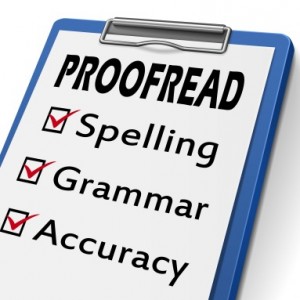Join our online community and be inspired to achieve your goals!
VIEW OUR FACEBOOK PAGEIt’s All So Ovibuos! Resume Mistakes You Need to Fix

As a Resume Writer, I’ve personally reviewed and advised on almost 1,000 Resumes in the past six years alone. Most of the Resumes I review aren’t great – after all, clients have come to us for assistance and advice because they recognise their current approach is not working. That said, we do see the same mistakes over and over again – mostly focused on typos, relevance, grammar, and formatting.
• Let’s start with Typos – it seems obvious but typos are a recruiter’s number one complaint. Anecdotal evidence indicates up to 60% of resumes contain typos. This often happens to those people tweaking their resumes frequently to match the requirements of different roles. Going back over your content time and time again to fine tune it makes you open to errors that you may not pick up in the rush to submit your application. While we always recommend taking the extra time to tailor your content to suit the role, it is important to also proof read your document carefully. It might sound strange but reading your document out aloud can help – and printing it out and reading it from a hard copy rather than the screen can also help. Having someone else review your document is ideal, but make sure they are detail oriented good spellers!
• Relevance – over time, some content may become less relevant to the roles you are applying for today, or perhaps the content is simply dated. It is a good idea when adding recent roles to reduce detail under older roles. Your Resume needs to convey the most important information about you and your past experience to get you in the door but without becoming too long. You should ensure the content fits a maximum of three or four pages and make every word count to convince the recruiter you deserve an interview. It is much harder to write less than more – short, sharp succinct content takes time and effort to achieve but will achieve better results for you in the end.
• Grammar – another area where mistakes can appear over time when content is regularly reviewed. Grammatical errors occur when you start to speak in past and present tense and first and second person. This is particularly important to pay attention to because it can make your Resume extremely difficult for a recruiter to read. Try to stick to past tense when describing past experience and achievements; with present tense for current employment. There is no need to use I, we, or other first person references because your document is already about you – the recruiter knows this and repeating it unnecessarily will just clutter your document.
• Formatting – unless you’re applying for a job as a designer or artist, your focus should be on creating clean, clear content in an attractive but simple format. Complex borders, columns and tables make Resumes look clunky and outdated and should be avoided. Use white space, bullet points and sub-headings to highlight and separate out sections.
The fact that so many Resumes contain errors means that if yours doesn’t you will stand out. Remember, your Resume is not meant to get you the job – that’s up to you during the interview. Make your content count by ensuring it’s short, sharp, relevant and error free for the best chance of success.
Are you interested in some assistance from a Professional CV Writer to prepare a winning Resume for your next job application? If so, please see our Resume Writing Services.

